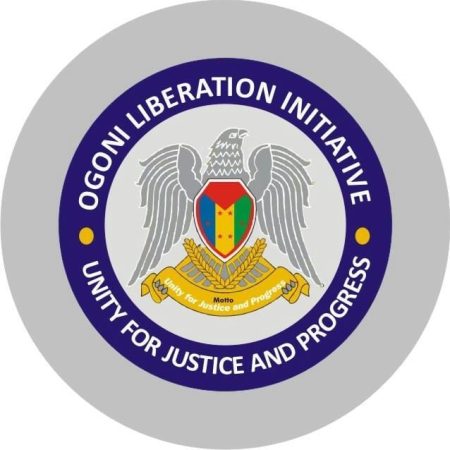 06 May 2014, Lagos – The long-held belief that Nigerians cannot make any meaningful contribution in the nation’s oil and gas industry development appears to be a ruse.
06 May 2014, Lagos – The long-held belief that Nigerians cannot make any meaningful contribution in the nation’s oil and gas industry development appears to be a ruse.
In the last four years, especially since the advent of the Nigerian Content Act, indigenous companies have continued to prove that appreciable development in the nation’s hydrocarbon industry can only be achieved by Nigerians themselves. This is buttressed by the foray into the deepwater, hitherto seen as the exclusive preserve of the International Oil Companies, IOCs.
Breaking new grounds
The Petroleum Technology Association of Nigeria, PETAN, believes that Nigerian companies have actually derived unique solutions to solve trying problems, especially in the deepwater. According to Mr. Emeka Ene, Chairman, PETAN, “Right now the world’s longest fibre security project is being done by a Nigerian company. It is the longest installation of such a solution.
It is a Nigerian company that is doing it not a multinational, not a foreign company “Nigerians indeed have the capacity to think through, and what is happening is that most of the research and development costs are usually funded from activity. As for that, we will follow and that is already happening.”
The PETAN boss also believes that Nigerians are unique when compared with other oil producing countries.
“Nigeria and Nigerians in the oil and gas industry are unique. They are unique in the sense that we’ve had the fastest growth in terms of hands on ability to deliver services.
There are local content models across the Middle East, but the local content models are simply an agency-type model. So once you set up an agency you can do business.
“However, in our own situation we have Nigerians who have made and are prepared to make investments to grow technical service companies from ground up. That is a significant difference because what we now see is that some Nigerian companies are already able to export these capability outside Nigeria.
“There is a Nigerian company in Houston providing computer services to clients there. It is a Nigerian company that started from here and evolved over there. We have Nigerian companies who are working in Mauritania offshore FPSO’s. We also have Nigerians who are drilling in Congo.
We have Nigerians who are offering services offshore Angola. We have Nigerians who are doing business in Yemen, in Saudi Arabia, in Oman.
“These are service companies that started in Nigeria and exported their business. In that respect, Nigeria is unique. In all of Africa, it is difficult to find the kind of momentum of Nigerian entrepreneurs or technocrats in the oil and gas industry.It just does not exist.
Our experience is partly because we have the population, partly because we have the drive, also partly because by unique combination of historical facts we have had a large population of diaspora – Nigerians who have the experience both internal and external and are ready to take the risk involved in setting up their businesses, so in that regard Nigerians are pretty much ahead and I think the industry recognises that,” he said.
Ene also believes that indigenous participation in the nation’s oil and gas industry is evolving. “What we are seeing is that there has been an evolution of indigenous technology in the industry. In terms of breakthroughs we have some of our companies manufacture pegs for pegging pipelines. One of our members builds platforms. One of our members manufactures electronic control panels for deepwater, shallow water control panels for FPSO’s.
“One of our members just built a deepwater theatre for training safety professionals. It is the only one in Africa. This is just a few examples of some of the things you are going to see at the offshore technology conference, OTC, in terms of the technology profile of Nigerian companies that are constantly growing from year to year,” he said.
Enhancing industrial growth
Mr. Scott Aitken, Chief Executive Officer, CEO, Atlantic Energy, also believes that indigenous participation is critical to the growth of the nation’s oil and gas industry.
He noted that there are yet untapped potential that indigenous companies can take advantage of to push up the country’s production in the petroleum sector.
According to him, indigenous players will not only boost production, they can also provide the much needed gas to boost power generation. He said for a nation that wants to develop its economy, it must pay more attention to the activities of indigenous oil producers by providing them with enabling environment to operate.
The Atlantic Energy boss is of the view that the role of indigenous producers cannot be overemphasized in the nation’s development, and reiterates that there are Nigerian solutions to every challenge that faces the nation.
He cites gas flared or compressed as LNG for export as possible areas where indigenous potential could be harnessed, saying that as indigenous producers, they needed to capture the gas, transport it safely and economically to the domestic market for highly effective and reliable power.
On the issue of funding which is one of the major problems facing the industry, Aiken was of the view that fast-tracking solutions to deliver early results will further help provide the funds required for development, thereby reducing the over-reliance on bank loans.
Growing domestication of services
Mr. Ayodele Oni, an energy law and policy expert and senior associate, Banwo & Ighodalo, a Lagos based law firm, said that in the last four years, there has been improvement in the participation of indigenous companies in the oil industry due to the implementation of the Nigerian Content Act.
“After four years, there have been modest achievements and an improvement in the overall Nigerian value addition to the oil and gas industry and certain Nigerian engineering and oil service companies have benefitted from it, as there has been an increase in the volume of in-country fabrication,” he said.
He explained that the first deepwater simulation theatre (DST) in Africa located in Port Harcourt, and commissioned in April, which was built by an indigenous oil servicing company, Tolmann Allied Services Company Ltd, lends credence to the evolving indigenous technology in the industry.
E & P exploits
The Nigerian oil industry, which has been dominated by the IOCs in areas such as exploration and production, has seen Nigerian companies now owning more than 100 blocks across oil-producing regions in the country, and at least 30 marginal fields.
By the end of this year, the major divestments by IOCs since 2010, would have transferred about 5 billion barrels of oil and 20 trillion cubic feet (Tcf) of gas to indigenous players, said Austin Avuru, managing director, Seplat Petroleum Development Company.
“The Nigerian Content Act has done so well in the last four years as many Nigerians now play active roles in the oil industry,” Tunde Adelana, director, monitoring and evaluation, Nigeria Content Development and Monitoring Board (NCDMB) said.
“We are seeing fabrication projects, pressure vessels being built by Nigerian companies,” he said, adding that the NCDMB was working very hard to put in place formidable processes to help detect non-compliance and abuses.
Effective competition
For Emeka Okwuosa, Managing Director of Oilserv, indigenous companies have come of age and are competing favourably with their foreign counterparts. “Indigenous companies are now taking control of lucrative pipeline construction projects.
The competition is now between indigenous companies and their foreign counterparts.
For instance, the East-West Gas Pipeline project awarded to Oilserv was made possible because of the steady investment in capacity building, and the insistence of the Minister of Petroleum Resources that indigenous companies must be accorded due recognition in line with the Nigerian Content Act,” he said.
Developing local technology
On the possibility of Nigerians sustaining indigenous technology that can stand them out in the industry, Mr. Barry Esimone, President of Crusteam, an energy and infrastructure group, believes that Nigerians can adopt a few and indigenise them.
“We can struggle to adopt a few and indigenise them especially in the area of process or drilling material technology. In doing this, we can beneficiate the local material to meet the requirement properties/ characteristics and can then patent such formula if it brings cost or efficiency advantage over imported ones.
The Raw Material Research Institute has been working on this area and may provide our niche in the industry,” he said.
Esimone also believes that technology development starts from Universities and are refined in research institutes.
He however said that government should encourage the establishment of low technology based industries to accommodate the participation of the locals in the industry.
“Local technology development must be achieved by trial and error method. Government should encourage the establishment of low technology based industries rather than sophisticated ones so that locals can participate and learn the tricks through improvisation which could then be refined at the universities and research institutes. The modern complex factories are usually automated with process packages patented, thereby preventing meddling and therefore understudying,” he said.
– Vanguard



